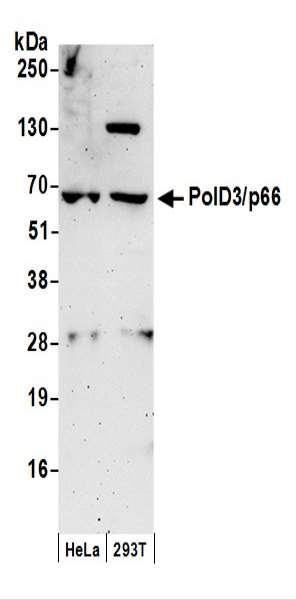Cookie-Einstellungen
Diese Website benutzt Cookies, die für den technischen Betrieb der Website erforderlich sind und stets gesetzt werden. Andere Cookies, die den Komfort bei Benutzung dieser Website erhöhen, der Direktwerbung dienen oder die Interaktion mit anderen Websites und sozialen Netzwerken vereinfachen sollen, werden nur mit Ihrer Zustimmung gesetzt.
Konfiguration
Technisch erforderlich
Diese Cookies sind für die Grundfunktionen des Shops notwendig.
"Alle Cookies ablehnen" Cookie
"Alle Cookies annehmen" Cookie
Ausgewählter Shop
CSRF-Token
Cookie-Einstellungen
FACT-Finder Tracking
Individuelle Preise
Kundenspezifisches Caching
Session
Währungswechsel
Komfortfunktionen
Diese Cookies werden genutzt um das Einkaufserlebnis noch ansprechender zu gestalten, beispielsweise für die Wiedererkennung des Besuchers.
Facebook-Seite in der rechten Blog - Sidebar anzeigen
Merkzettel
Statistik & Tracking
Endgeräteerkennung
Kauf- und Surfverhalten mit Google Tag Manager
Partnerprogramm

| Artikelnummer | Größe | Datenblatt | Manual | SDB | Lieferzeit | Menge | Preis |
|---|---|---|---|---|---|---|---|
| A301-244A-T | 10 µl (10 µg) | - |
2 - 8 Werktage* |
164,00 €
|
|||
| A301-244A | 100 µl (100 µg) | - |
2 - 8 Werktage* |
588,00 €
|
Bei Fragen nutzen Sie gerne unser Kontaktformular.
Bestellen Sie auch per E-Mail: info@biomol.com
Größere Menge gewünscht? Bulk-Anfrage
Bestellen Sie auch per E-Mail: info@biomol.com
Größere Menge gewünscht? Bulk-Anfrage
Protein function: As a component of the trimeric and tetrameric DNA polymerase delta complexes... mehr
Produktinformationen "Anti-PolD3/p66"
Protein function: As a component of the trimeric and tetrameric DNA polymerase delta complexes (Pol-delta3 and Pol-delta4, respectively), plays a role in high fidelity genome replication, including in lagging strand synthesis, and repair. Required for optimal Pol-delta activity. Stabilizes the Pol-delta complex and plays a major role in Pol-delta stimulation by PCNA (PubMed:10219083, PubMed:10852724, PubMed:11595739, PubMed:16510448, PubMed:24035200). Pol-delta3 and Pol-delta4 are characterized by the absence or the presence of POLD4. They exhibit differences in catalytic activity. Most notably, Pol- delta3 shows higher proofreading activity than Pol-delta4 (PubMed:19074196, PubMed:20334433). Although both Pol-delta3 and Pol-delta4 process Okazaki fragments in vitro, Pol-delta3 may also be better suited to fulfill this task, exhibiting near-absence of strand displacement activity compared to Pol-delta4 and stalling on encounter with the 5'-blocking oligonucleotides. Pol-delta3 idling process may avoid the formation of a gap, while maintaining a nick that can be readily ligated (PubMed:24035200). Along with DNA polymerase kappa, DNA polymerase delta carries out approximately half of nucleotide excision repair (NER) synthesis following UV irradiation. In this context, POLD3, along with PCNA and RFC1-replication factor C complex, is required to recruit POLD1, the catalytic subunit of the polymerase delta complex, to DNA damage sites (PubMed:20227374). Under conditions of DNA replication stress, required for the repair of broken replication forks through break-induced replication (BIR) (PubMed:24310611). Involved in the translesion synthesis (TLS) of templates carrying O6-methylguanine or abasic sites performed by Pol-delta4, independently of DNA polymerase zeta (REV3L) or eta (POLH). Facilitates abasic site bypass by DNA polymerase delta by promoting extension from the nucleotide inserted opposite the lesion (PubMed:19074196, PubMed:25628356, PubMed:27185888). Also involved in TLS, as a component of the POLZ complex. Along with POLD2, dramatically increases the efficiency and processivity of DNA synthesis of the minimal DNA polymerase zeta complex, consisting of only REV3L and REV7 (PubMed:24449906). [The UniProt Consortium]
| Schlagworte: | Anti-POLD3, Anti-KIAA0039, Anti-DNA polymerase delta subunit C, Anti-DNA polymerase delta subunit 3, Anti-DNA polymerase delta subunit p66, Anti-DNA polymerase delta subunit p68 |
| Hersteller: | Bethyl Laboratories |
| Hersteller-Nr: | A301-244A |
Eigenschaften
| Anwendung: | WB, IP |
| Antikörper-Typ: | Polyclonal |
| Konjugat: | No |
| Wirt: | Rabbit |
| Spezies-Reaktivität: | human (Erwartet: dog, rabbit, pig, panda, orangutan, rhesus monkey, gorilla, chimpanzee, white-tufted-ear marmoset, crab-eating macaque, naked mole rat, thirteen-lined ground squirrel, little brown bat, northern white-cheeked gibbon) |
| Immunogen: | synthetic peptide. The epitope recognized by A301-244A-T maps to a region between residue 416 and 466 of human DNA polymerase delta, subunit 3 using the numbering given in entry NP_006582.1 (GeneID 10714). |
| Format: | Antigen Affinity Purified |
Datenbank Information
| KEGG ID : | K03504 | Passende Produkte |
| UniProt ID : | Q15054 | Passende Produkte |
| Gene ID | GeneID 10714 | Passende Produkte |
Handhabung & Sicherheit
| Lagerung: | +4°C |
| Versand: | +4°C (International: +4°C) |
Achtung
Nur für Forschungszwecke und Laboruntersuchungen: Nicht für die Anwendung im oder am Menschen!
Nur für Forschungszwecke und Laboruntersuchungen: Nicht für die Anwendung im oder am Menschen!
Hier folgen Informationen zur Produktreferenz.
mehr
Hier kriegen Sie ein Zertifikat
Loggen Sie sich ein oder registrieren Sie sich, um Analysenzertifikate anzufordern.
Bewertungen lesen, schreiben und diskutieren... mehr
Kundenbewertungen für "Anti-PolD3/p66"
Bewertung schreiben
Loggen Sie sich ein oder registrieren Sie sich, um eine Produktbewertung abzugeben.
Zuletzt angesehen






